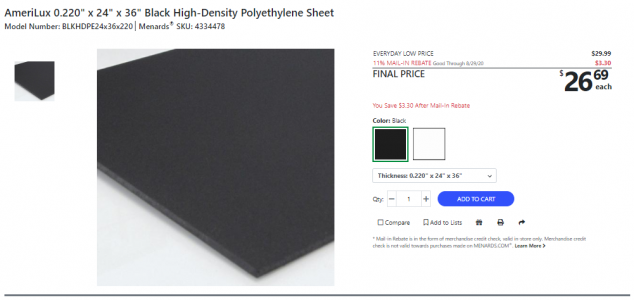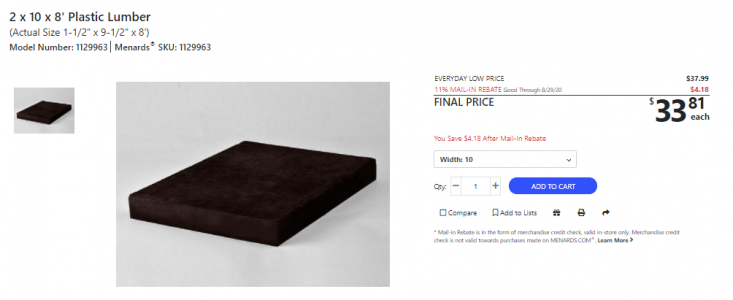- Joined
- Mar 2, 2018
- Messages
- 232
I've become intrigued with the idea of building a clock using involute gears. I've found some references to experiments done on bomb timers that suggested there was no disadvantage to using involute gears in clockwork mechanisms, and I just want to give it a whirl. The worst thing that could happen is the clock doesn't run well, which would put it on a par with every other clock I've built so far.
The other problem I want to address is the size limitations of the material I can realistically work with. All the clocks I've built to date have been wooden kit clocks, and they have all had relatively huge wheels. If you want to make, say, an 8" wheel out of brass, then you need a piece of 8" diameter stock. I haven't priced it, but I can already tell you that it's just stupidly expensive. Even aluminum in bigger sizes like that is stupidly expensive. A quick search turned up a price of $150 an inch for aluminum and brass only went up to 4" on that site, which is $90 an inch. Ouuuch.
So I want to use involute gears, and I want to limit the maximum size to something affordable, like 2" diameter. I also want to build some real chimes into this crazy thing. Forget Westminster, I want it to play a melody I wrote for a dungeon game a long time ago. I've been following the Marble Machine X build on Youtube for the last two years, and I guess I'm inspired to make a mechanical thingie that plays some music I wrote.
So at this point, I'm really just daydreaming. I finally pulled the trigger on the dividing head I've been talking myself out of buying for years. The only reason I even want to learn how to make gears, is because I've always been fascinated by mechanical clocks. I wear a little one on my wrist every day, even though my phone tells much better time.
I'm not even married to a mechanical escapement. I might consider something crazy, like a fancy brass mechanical hoopty do that's driven by a quartz crystal. I guess I'm just trying to think way outside the box here, and come up with an all-consuming mad scientist type project to help me deal with fall depression for the next 50 or 60 or 180 years, until I finally get a working prototype finished. I mean, sitting here having never cut a gear in my life, and dreaming of impossible craziness.
The other problem I want to address is the size limitations of the material I can realistically work with. All the clocks I've built to date have been wooden kit clocks, and they have all had relatively huge wheels. If you want to make, say, an 8" wheel out of brass, then you need a piece of 8" diameter stock. I haven't priced it, but I can already tell you that it's just stupidly expensive. Even aluminum in bigger sizes like that is stupidly expensive. A quick search turned up a price of $150 an inch for aluminum and brass only went up to 4" on that site, which is $90 an inch. Ouuuch.
So I want to use involute gears, and I want to limit the maximum size to something affordable, like 2" diameter. I also want to build some real chimes into this crazy thing. Forget Westminster, I want it to play a melody I wrote for a dungeon game a long time ago. I've been following the Marble Machine X build on Youtube for the last two years, and I guess I'm inspired to make a mechanical thingie that plays some music I wrote.
So at this point, I'm really just daydreaming. I finally pulled the trigger on the dividing head I've been talking myself out of buying for years. The only reason I even want to learn how to make gears, is because I've always been fascinated by mechanical clocks. I wear a little one on my wrist every day, even though my phone tells much better time.
I'm not even married to a mechanical escapement. I might consider something crazy, like a fancy brass mechanical hoopty do that's driven by a quartz crystal. I guess I'm just trying to think way outside the box here, and come up with an all-consuming mad scientist type project to help me deal with fall depression for the next 50 or 60 or 180 years, until I finally get a working prototype finished. I mean, sitting here having never cut a gear in my life, and dreaming of impossible craziness.



